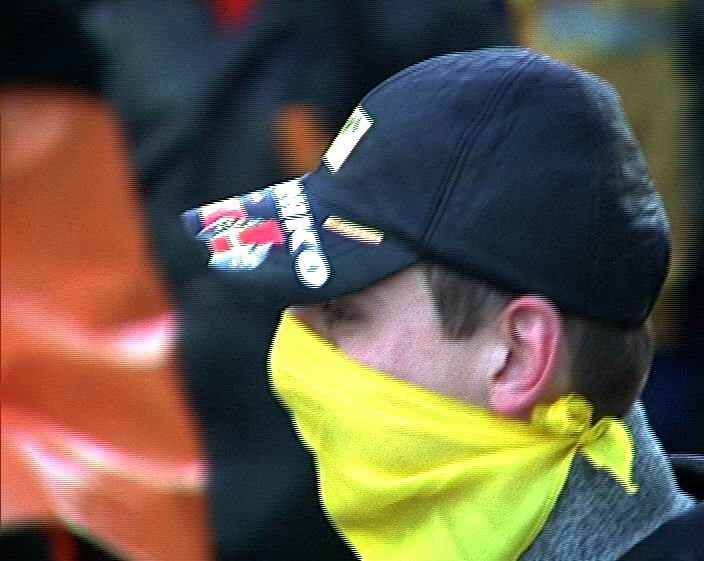Serbian Group Exports Protest Know-How

Kiev protestors were trained by a Serbian group
Otpor, the activists who helped bring down Slobodan Milosevic, are training protestors and grass roots activists in Ukraine and around the world.
The civil rights group "Otpor," which means resistance in Serbian, helped bring down Slobodon Milosevic four years ago. But after wrestling power away from one of Europe's most notorious tyrants, the group did not fade into history.
Instead, they pulled their resources and founded the Center for Non-violent Resistance in Belgrade, dedicated to training protestors and grass roots activists around the world. Last year the group was involved in toppling Georgian autocrat Eduard Shevardnadze. Their most recent battleground in Ukraine, however, brought them the most attention when they targeted hardliners and provided crucial assistance to protestors in the weeks following the election crisis.
Dress rehearsal for Kiev
Long before the thousands of protestors camped out in Kiev's Independence Square started forming human chains and blocking off government buildings in response to the fraudulent election of Viktor Yanukovych, organizers from Otpor were already active in Ukraine. A lesser known mayoral election in the small western city of Mukatschewe in April provided the activists with an opportunity for a dress rehersal.
Volunteers from Otpor travelled to the Ukrainian town to train protestors and help organize the group "Pora," which means "It is Time" in Serbian. Applying non-violent protest techniques, the activists managed to overturn the mayorial election results, which they said were marked by voter intimidation and widespread fraud. A group subsequently organized by Pora then went on to play a crucial role during the national election, when they employed many of the same Otpor techniques in downtown Kiev.
A "degree" in protest
"They taught us everything we know," Olga, a leading member of Pora told Deutsche Welle.
Instructors from Otpor arrived in Ukraine well ahead of the elections to serve as observers and help get the vote out. They then stayed on to help organize the protests in the tumultuous weeks that followed, teaching dozens of courses in the hopes that successful "graduates" would go on to share their new know-how with others.
However, Sinisa Sikman, one of the Otpor instructors who worked in Ukraine, says her organization does not export one- size-fits-all protest techniques -- the group makes an effort to adapt their practices to the unique circumstances of each country it operates in. She says the goal of Otpor is to help similar grass roots groups who don't have the knowledge or means to organize a massive protest. It's the enthusiasm and commitment of the protestors that provides the common thread.
"I have to say, the young Ukrainians are every bit as creative, educated and humorous as the Serbian youth who protested against Milosevic," she told Deutsche Welle.
Otpor trainers are now looking towards Belarus, where despite a recent ban on their activities, they're still hoping to motivate young people to push for reforms. But they aren't just active in instigating civil revolutions. In western democracies, the Serbian organization has gained a reputation for instructing various environmental protest groups.
And it's not just pure idealism that drives them. The trainers and advisors in civil protest are hired out and paid as professionals.
Sasa Bojic (ziw
Publication of 12 14, 2004.
|




